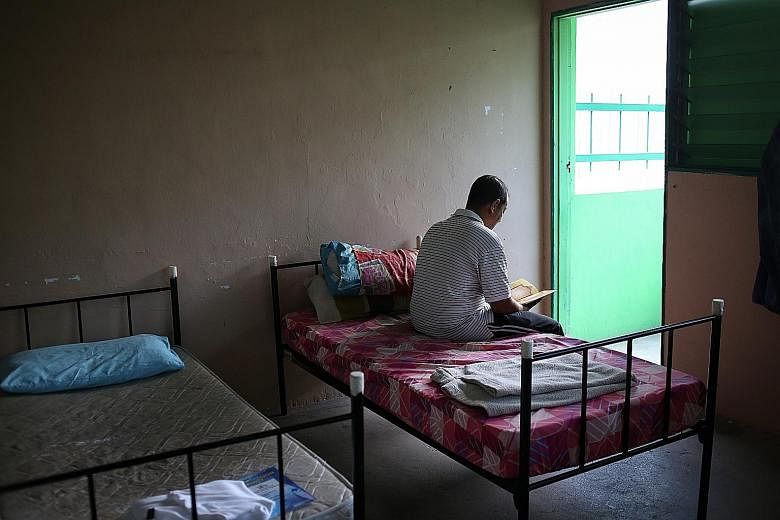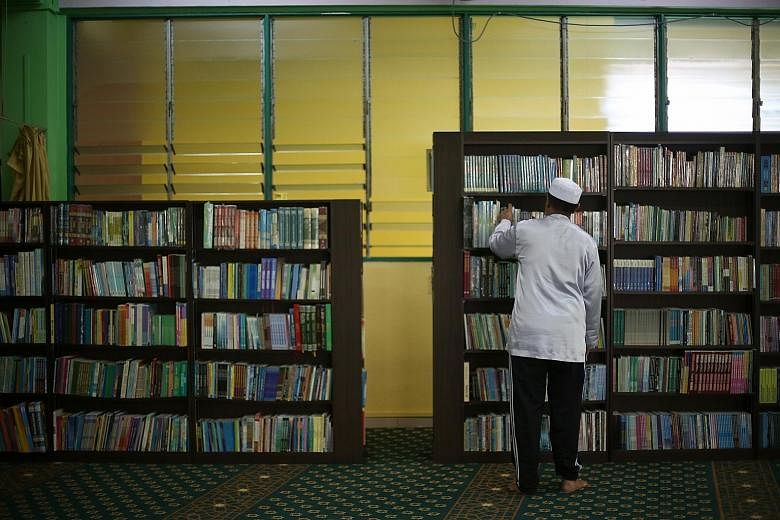Malay-Muslim groups in Singapore are gearing up to tackle the drug problem within the community head on. Several have rolled out new programmes to further assist Malay drug offenders and their families.
These new initiatives come at a critical time.
At an annual seminar organised by the the Association of Muslim Professionals (AMP) on April 1, Home Affairs and Law Minister K. Shanmugam said about 53 per cent of drug abusers arrested last year were Malay, up from 32 per cent in 2006. The proportion of new Malay drug abusers has also gone up to 54 per cent last year, from 22 per cent in 2006.
Minister-in-charge of Muslim Affairs Yaacob Ibrahim said he welcomes the community's efforts to address the problem and would like to see more young people reaching out to their peers to ensure they do not abuse drugs.
Dr Yaacob, who is also the Minister for Communications and Information, added: " I think what we need to do is to reach out to the young, families especially, families with young children and families from difficult circumstances. We know most of them will have problems at home and that is why they turn to drugs.
"When we do the outreach programmes, we basically send the message to the families that there are things they can do as parents, there are things they can do as families. We will leave the security part to the agencies. On the part of the community, we have to reach out to our young to make sure they understand that drugs are not the solution, there must be other things they can do as young people."
AMP senior manager Hameet Khanee told The Sunday Times that easy access to narcotics has contributed to the increase in the number of Malay drug abusers.
Highlighting that some drugs are easily available online, she added: "Current awareness programmes and drug prevention campaigns should be enhanced, especially those targeted at schools.
"More effort should go into enhancing the role of the family as the main avenue of support and educator. This is particularly more important for families where both parents are working and supervision is minimal."
In a move to reach out to Malay/Muslim drug offenders who are still behind bars and their families, AMP launched last month its new Development and Reintegration Programme.
Madam Hameet said there are two phases in this initiative. The first one has 10 sessions covering topics on reflection, strengthening families, financial literacy, work-related skills and new beginnings.
These are designed to complement the programmes that are currently being offered by the Singapore Prison Service.
The second phase focuses on after-care, with case work services for inmates and their families.
There are 23 inmates and families in the pilot run. The goal is to support up to 100 inmates and their families over a year.
The Islamic Theological Association of Singapore's (Pertapis) new initiative also focuses on former inmates and their families. The New Spice Up programme launched last year aims to help former abusers reconnect with their families and society through activities like kayaking and abseiling.
Pertapis' deputy head Muhammad Sufian Salim said: "When a former abuser is occupied with more wholesome activities, they will move away from drugs. Through sports, they can also regain their self esteem."
Another non-governmental organisation, Singapore Islamic Scholars and Religious Teachers Association (Pergas) has developed a structured programme for Muslim inmates known as "Insan Mukmin" (Faithful Muslim).
Participants of this joint effort between Pergas, the Ministry of Home Affairs and Malay self-help group Mendaki will attend 14 sessions of religious counselling while serving their sentences in Changi Prison. When they are released, they will attend after-care programmes made up of five sessions of religious counselling at Khalid Mosque in Joo Chiat Road.
Twenty-four inmates participated in this initiative in its pilot last year.
A Pergas spokesman said: "We hope that by the end of the Insan Mukmin programme, participants will be rekindled with the practices and religious values of Islam and continue their knowledge-seeking journey to enhance their faith towards becoming a better believer."
As some of these initiatives involve both the drug offenders and their loved ones, the battle against drugs can now be fought together as a family unit.
Mr Sufian said that when inmates do not have healthy coping strategies to cope with a crisis, they will channel their emotions in an undesirable direction which could breach the law. "For example, an inmate who is released from prison and is unable to secure a place to stay may be in a dilemma. Due to lack of proper guidance and referrals, he may seek help from his ex-peers who are high-risk offenders. Sharing the same roof with these ex-peers will raise the risk of re-offending for the freshly released inmates."
One of the some 70 residents of Pertapis' halfway house, who wanted to be known only as Mr Ahmad, agreed and felt that the company one keeps could make or break a person.
He said he was just 14 years old when he tried drugs for the first time. Back then, he used to hang around with a group of boys around his age and they introduced him to cannabis.
The bachelor, now 44, said: "I didn't want to be left out and took a puff. I was soon hooked on the drug." That one puff of cannabis marked the start of his lifelong battle against drugs.
Mr Ahmad had been in and out of drug rehabilitation centres and prison three times for narcotics-related offences.
He was last caught for drug trafficking about seven years ago and is now serving part of that sentence in the halfway house.
Looking back, Mr Ahmad said: "I've stopped hanging around with those guys and realised family support is very important in helping me turn over a new leaf."
Shaffiq Alkhatib



